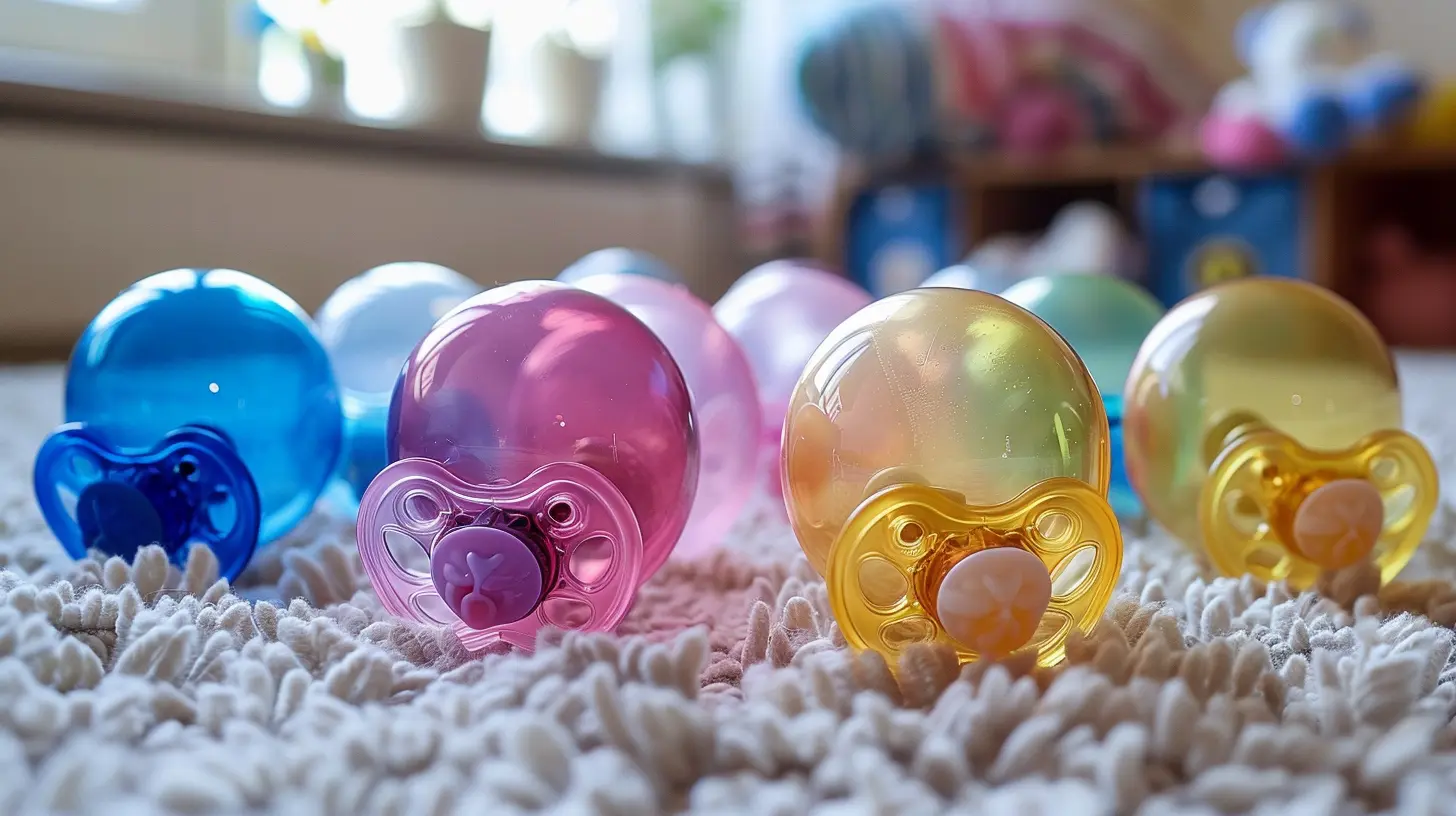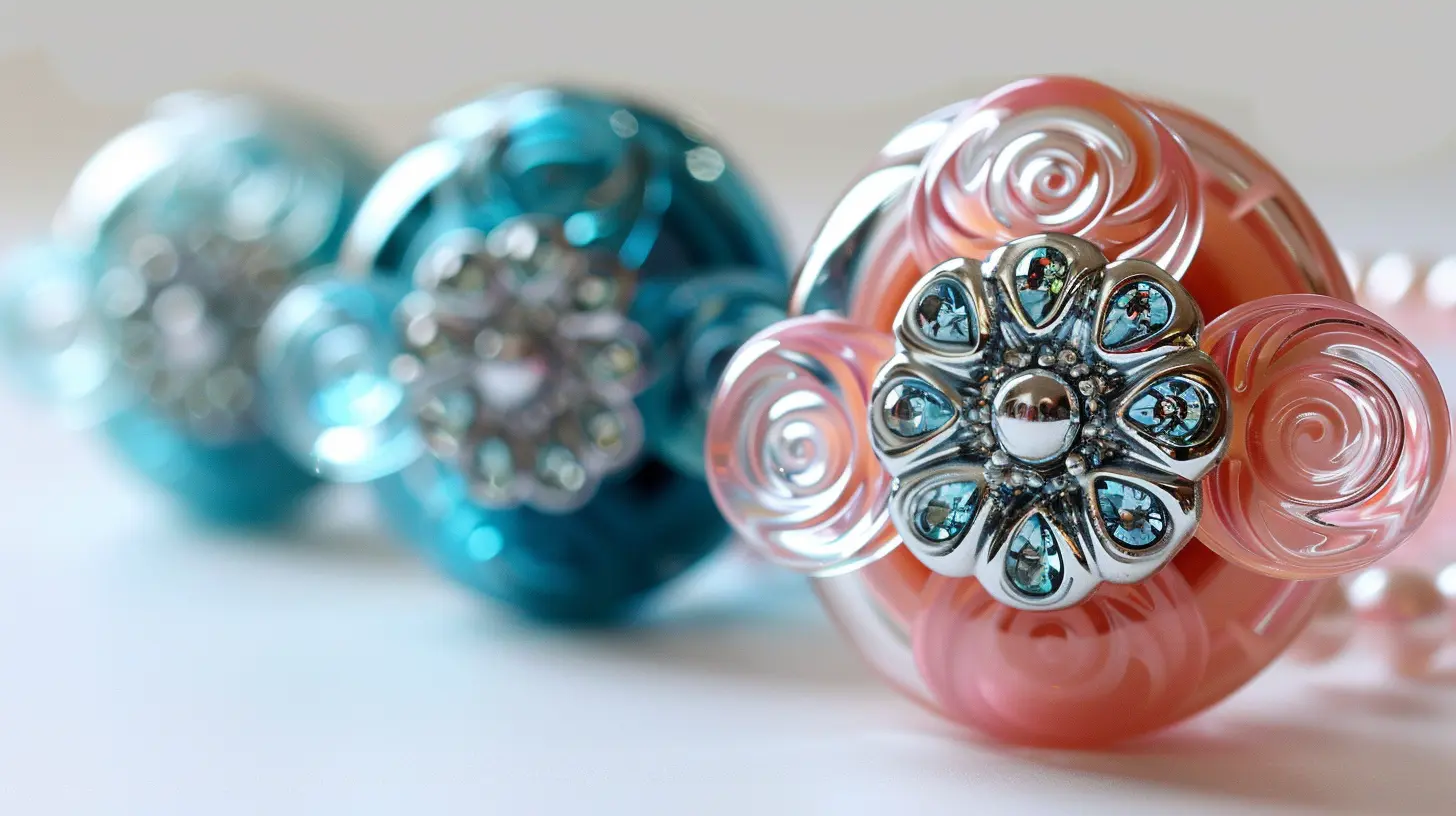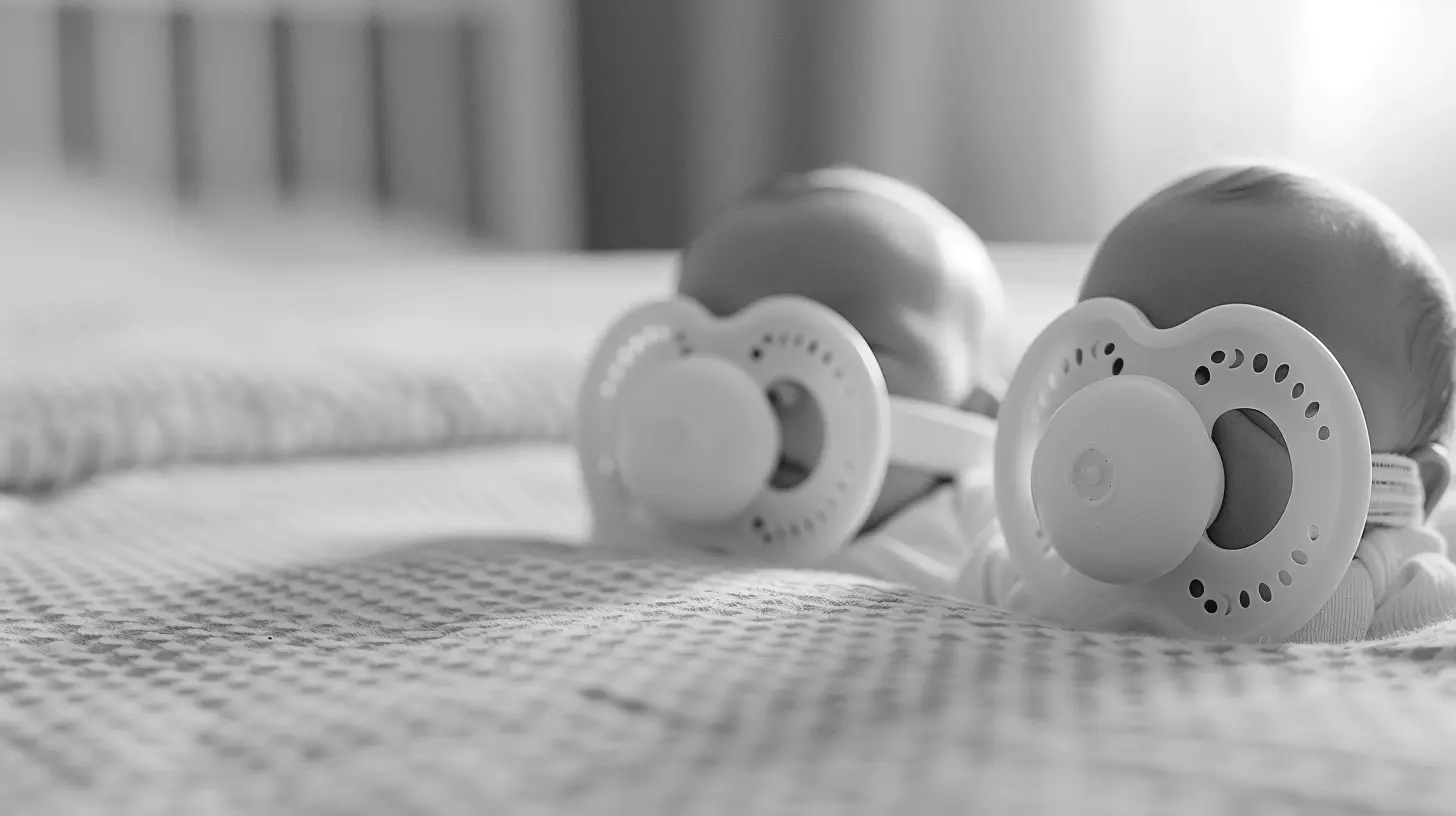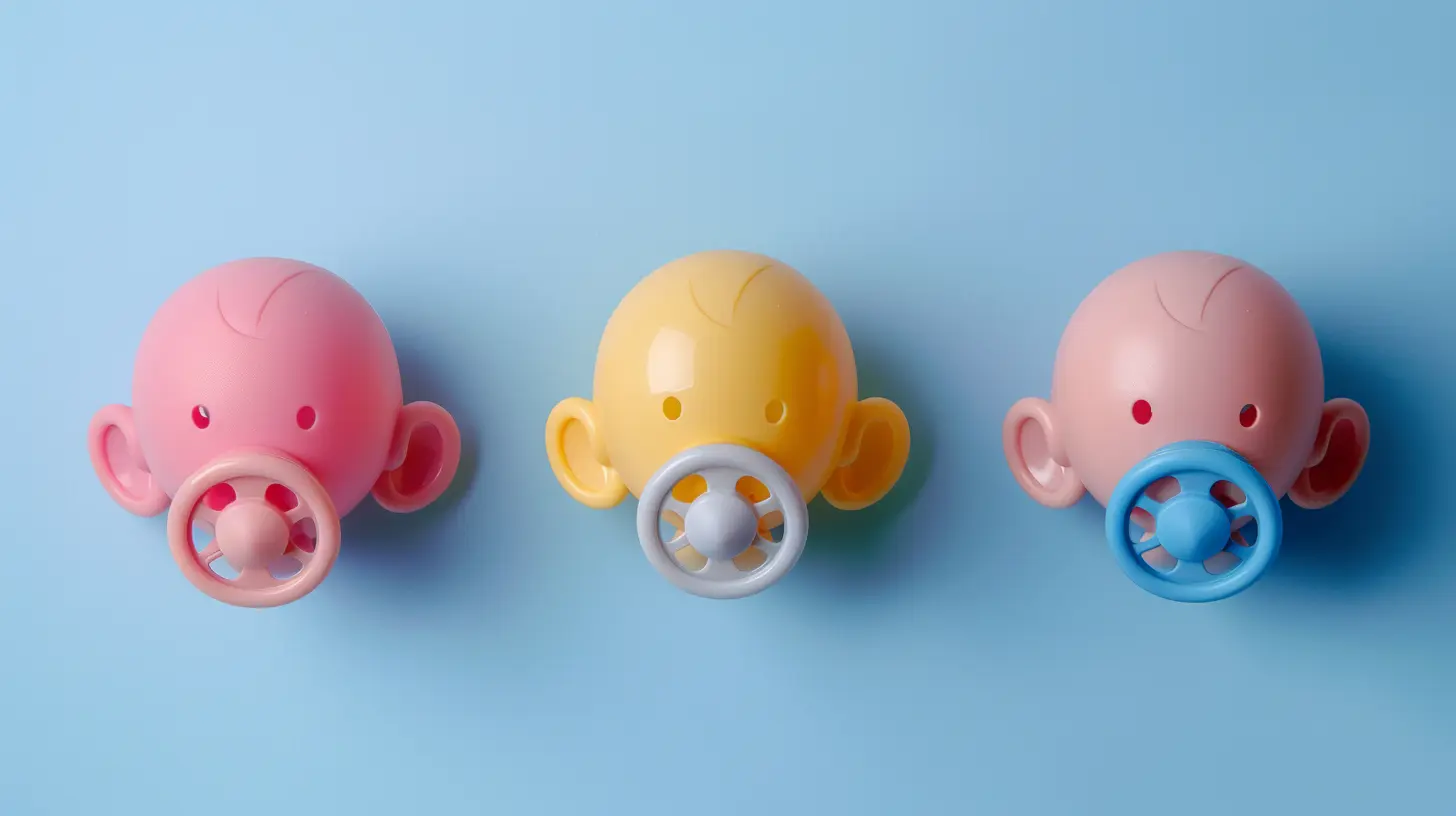23 April 2025
Ah, pacifiers — those tiny little objects that either save the day or make your life as a parent just a little more complicated. If you’re a new parent, or even if you’ve been around the block a time or two, you’ve likely found yourself wondering: Do pacifiers help or hinder baby sleep? We’ve all heard stories from both sides of the fence, haven’t we? Some parents swear by them, others avoid them like the plague.
In this guide, we’ll dive deep into whether pacifiers are really miracle workers when it comes to baby sleep or if they’re simply another thing to cause sleepless nights. So grab your coffee (I know you need it!), and let’s break it down.

What Are Pacifiers, And Why Do Babies Love Them?
Before diving into whether a pacifier will help or hinder your little one’s sleep, let’s talk briefly about why babies are so obsessed with them in the first place. If your baby could talk, they’d probably describe a pacifier as the ultimate comfort item — like a snuggly blanket for their mouth.Babies are born with a natural reflex to suck. It soothes them, and in some cases, the act of sucking gives them a sense of security. This is why breastfeeding and bottle-feeding can be so calming for a newborn. But here’s the thing: they don’t always want milk or sustenance. Sometimes, they just want that soothing, repetitive sucking motion. Enter the pacifier, stage left.
Pacifiers fulfill that need and give babies a way to self-soothe. Sounds simple, right? Well, like anything when it comes to babies—there’s more to the story.

How Pacifiers Can Help with Sleep
Let’s start with the good news. There are instances where pacifiers can be an absolute game-changer when it comes to baby sleep.1. A Soothing Tool
For babies, falling asleep isn’t always easy. A dark room, strange sounds, gas pains… Who can blame them for struggling to get a good night’s sleep? Pacifiers give babies something to focus on, often helping them feel more secure and less anxious during bedtime.Much like adults might have a glass of warm milk or listen to relaxing music before bed to wind down, babies can use the pacifier as a means of transitioning from awake to sleepy. It’s comforting, and let’s face it—every little bit helps when you’re trying to get your baby down for the night.
2. Reducing the Risk of SIDS
Perhaps one of the most compelling reasons parents turn to pacifiers during sleep is the potential for lowering the risk of Sudden Infant Death Syndrome (SIDS). According to several studies, babies who sleep with a pacifier have a reduced risk of SIDS, though researchers have yet to pinpoint exactly why.One theory is that sucking on a pacifier helps to keep babies in a lighter state of sleep, which may make it easier for them to wake up on their own if something is wrong. Another possibility is that pacifiers help to keep the airways open by positioning the tongue forward. Either way, the possible link between pacifiers and reduced SIDS risk is enough to make many parents lean in favor of using one during sleep.
3. Fewer Sleep Associations to Break Later
Let’s be honest: establishing healthy sleep habits for a baby is tough. If your baby uses a pacifier and it works, you might find that you don’t need to rely as heavily on other sleep crutches. A pacifier can gradually replace more labor-intensive methods like rocking, bouncing, or holding your baby until they fall asleep.With time, as your baby gets older and more independent, you can start transitioning away from the pacifier without needing to break a lot of other habits. In that sense, a pacifier can be a short-term solution that helps you avoid some long-term sleep struggles.

The Downside: Can Pacifiers Hinder Sleep?
Alright, now it’s time to look at the flip side of the coin. While pacifiers can undoubtedly rescue some sleep-deprived parents, they’re not without their downsides. You might find that the very thing helping your baby fall asleep is also causing you headaches later on.1. The Midnight Pacifier Game
One of the most notorious drawbacks to using a pacifier is the dreaded "pacifier pop-out" at 3 a.m. You know the drill: your little one is fast asleep, but out pops the pacifier, and suddenly they’re crying because they can’t find it. You get out of bed, stumble through the dark, put the pacifier back in their mouth, and sigh — crisis averted... until it happens again ten minutes later.For some babies, losing that soothing device in the middle of the night can cause major disruptions in sleep. If your baby relies heavily on the pacifier to stay asleep, you may find you’re up multiple times a night to play the pacifier retrieval game. That’s a no-sleep zone for parents!
2. Pacifier Dependence
While the goal might be to use a pacifier as a sleep aid, some babies become highly dependent on it to fall (and stay) asleep. This means that if the pacifier isn’t available, they might struggle to soothe themselves and calm down. You may succeed in establishing sleep associations with the pacifier—but then find yourself dealing with a baby who can’t sleep when it’s not there.This dependence can become particularly problematic as your child grows older and you try to wean them off the pacifier. Like any habit, breaking the reliance on a pacifier can take time and effort, and it may lead to disrupted sleep for a while as your child adjusts.
3. Dental Implications
Many experts advise limiting pacifier use after a certain age to avoid dental issues. Prolonged pacifier use (beyond 2-3 years of age) can potentially lead to problems with the alignment of a child’s teeth or even changes in the shape of the mouth. Though it's not something that will directly affect your baby’s sleep right now, it’s worth considering down the road.
When Should You Use a Pacifier for Sleep — And When Should You Avoid It?
Now that we’ve looked at both the pros and cons, you might be wondering: Should I even introduce a pacifier to my baby in the first place? Well, like many things in parenting, the answer depends on your baby and your unique situation.1. If Breastfeeding, Wait a Little While
If you’re a breastfeeding mama, it’s often recommended to hold off on introducing a pacifier for the first few weeks. This helps establish a strong breastfeeding routine without the risk of “nipple confusion,” where the baby gets used to the artificial shape of the pacifier and struggles with latching onto the breast.2. Keep an Eye on Pacifier Use
Once your baby is around six months old, some experts recommend starting to wean them off the pacifier, especially during sleep times. This is mainly because babies are at a developmental point where they can start soothing themselves without needing that external comfort.Still, don’t feel pressured into cutting it out if it’s working for you — plenty of babies continue using pacifiers beyond six months with no issues.
3. Use Age-Appropriate Pacifiers
As your baby grows, make sure you’re using pacifiers that are the right size and shape for their age. This can minimize the risk of dental problems and ensure that the pacifier is providing appropriate comfort for their developmental stage.Tips for Safe Pacifier Use During Sleep
Okay, so you’ve decided that a pacifier might actually help your baby get some much-needed rest. Great! But let’s make sure you’re using it safely, especially when it comes to sleep.Here are a few tips to keep in mind:
1. Ensure It’s Clean
Babies love to put everything in their mouths (don’t we know it). To avoid lingering bacteria, always clean and disinfect the pacifier regularly, especially if your baby uses it close to bedtime.2. Avoid Pacifier Clips in the Crib
It might be tempting to attach the pacifier to your baby’s clothes or crib to ensure they don’t lose it during naps or at night, but this can be dangerous. Pacifier clips or strings can create a strangulation hazard, so it’s best to leave them out of the crib.3. Don’t Reinforce the Habit Every Time
Pacifiers can be comforting, but if your baby spits it out and stays calm, don’t rush in to replace it. Giving them a chance to fall back asleep without it might help in easing pacifier dependence over time.Final Thoughts: To Pacifier or Not to Pacifier?
So, do pacifiers help or hinder baby sleep? It all comes down to your baby’s unique needs and habits. For some, pacifiers are an absolute lifesaver — an easy tool for soothing and promoting safe sleep. For others, they can become a source of frustration, leading to interrupted nights as your baby’s attachment to the pacifier grows too strong.At the end of the day, listen to your intuition. There’s no one-size-fits-all answer to sleep (if only, right?). If a pacifier helps your little one settle down and you can manage the occasional midnight retrieval, then go for it. If it’s more trouble than it’s worth, don’t be afraid to try other soothing methods.
Whatever you choose, one thing is certain: you will become a pro at navigating baby sleep challenges, pacifier or not!




Tempest McKinnon
Pacifiers: the double-edged sword of baby sleep! While they can soothe little ones to dreamland, relying on them too much might create a nighttime crutch. Striking the right balance could mean sweet dreams for baby—and parents. Who knew sleep could be so complicated?
April 25, 2025 at 3:39 PM